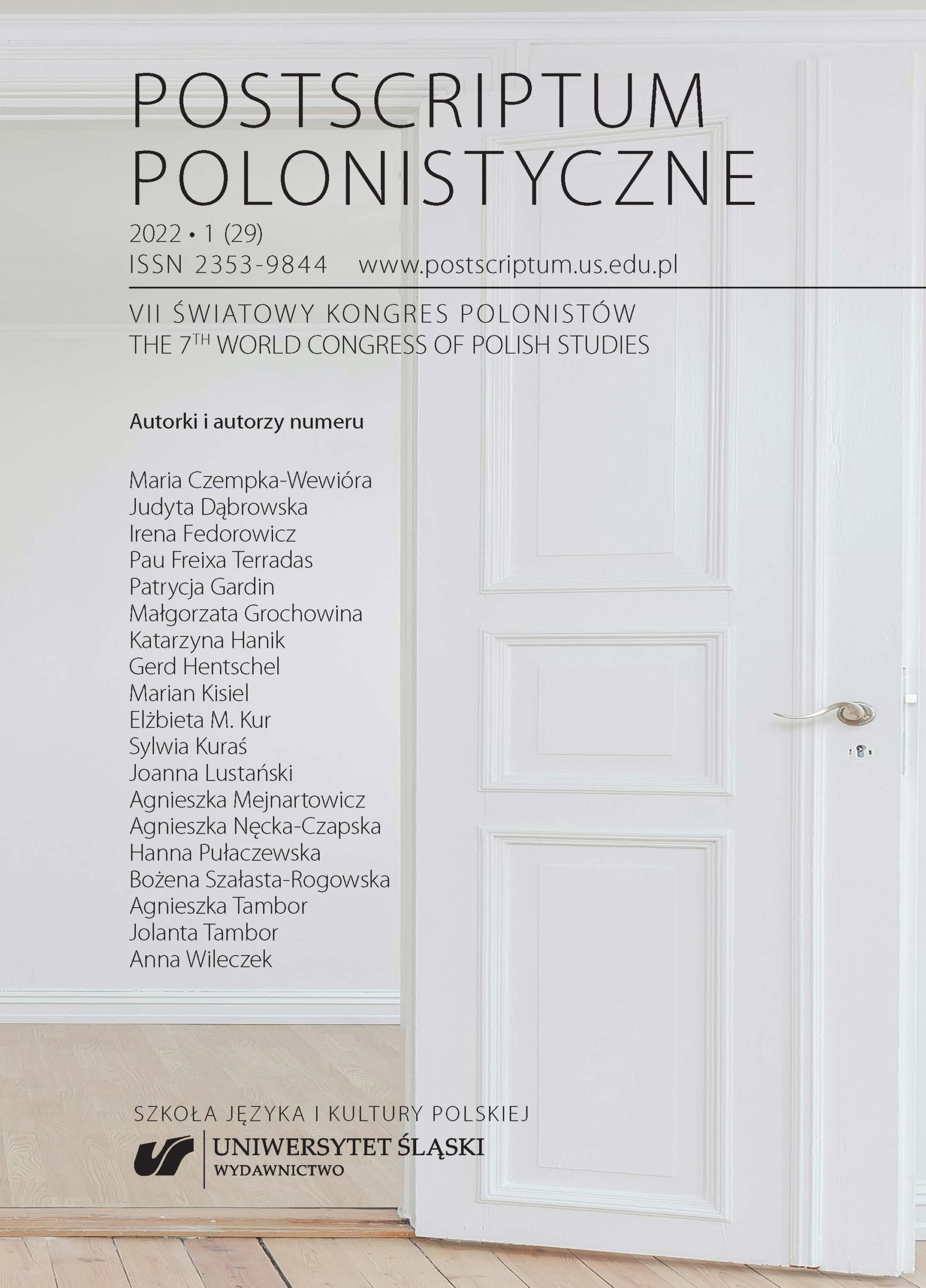Number 2022 • 1 (29)
|
|
Number 2022 • 1 (29)The 7th World Congress of Polish StudiesNumber editors: Maria Czempka-Wewióra, Jolanta Tambor |
|
The 7th World Congress of Polish Studies
Language diversity, variants, regio- and professiolect
- Gerd Hentschel: Regional Languages: A Threat or a Chance for Strengthening the Polish Language Community?
- Gerd Hentschel: Quantitative Socio-Dialectology. Regional and Social Differentiation of the Silesian Regiolect. Exemplified by the Vitality of German Lexical Borrowings
- Anna Wileczek: Teacher Talk: Notes on the Contemporary Professional Jargon of Teachers
Archives, collections, memory
- Irena Fedorowicz: Vilnius Archives Collections as a Source of Information about Polish Writers of 19th and 20th Centuries
- Bożena Szałasta-Rogowska: Poetry in the Circle of the Polish Publishing Fund: Chronicle, Archive, Patronage, and Discoveries
- Joanna Lustański: Features of the Canadian Polish Research Institute Collections: Selected Research Opportunities
The Polish language and Polish studies abroad
- Hanna Pułaczewska: Polish in Germany: Adolescence as a “Critical Period” in the Use of an Inherited Language
- Patrycja Gardin: The Legacy of Stanisław Leszczyński. On Teaching Polish Language and Culture in Nancy: History, Challenges, Threats
- Pau Freixa, Agnieszka Mejnartowicz: The Barcelona Polish Studies Centre: History of Its Disappearance, Hopes and Prospects in the Context of the Reform of the Structure of Philological Studies in Spain
- Małgorzata Grochowina: Teaching the Polish Language and Polish Culture Remotely at the Immanuel Kant Baltic Federal University
Varia
- Elżbieta M. Kur: Voices from the “Last Ring” – Between Life and Death, the Past and the Temporal Universe
- Sylwia Katarzyna Kuraś: The Labels Woman and Jew: The Other in the School
- Judyta Dąbrowska: Where Did the Impasse Come From? Maria Poprzęcka’s Reflections on Contemporary Art
- Katarzyna Hanik: Reading Scandal: In the Margins of Polish Fiction after 2000
Surveys
In Memoriam





